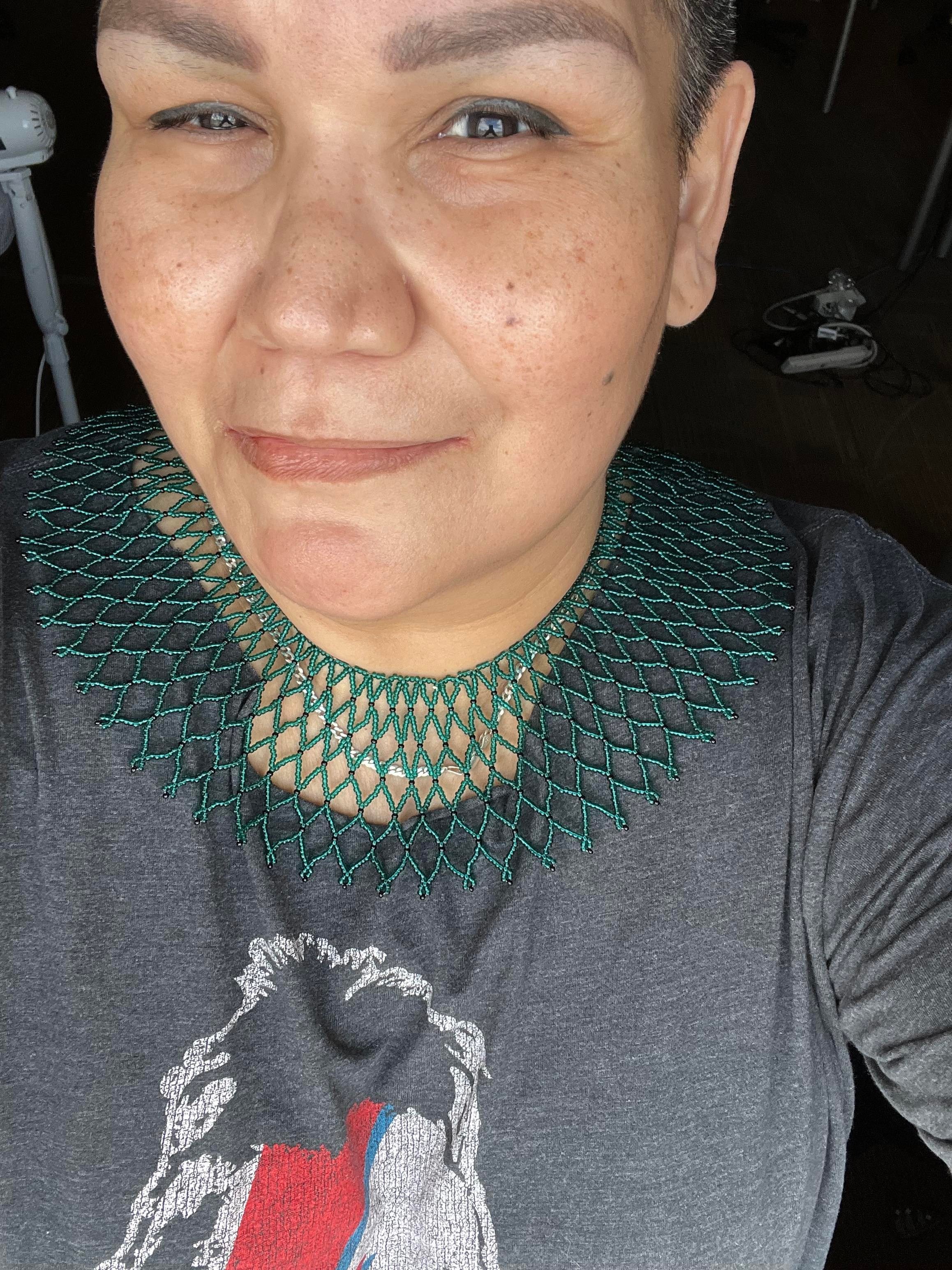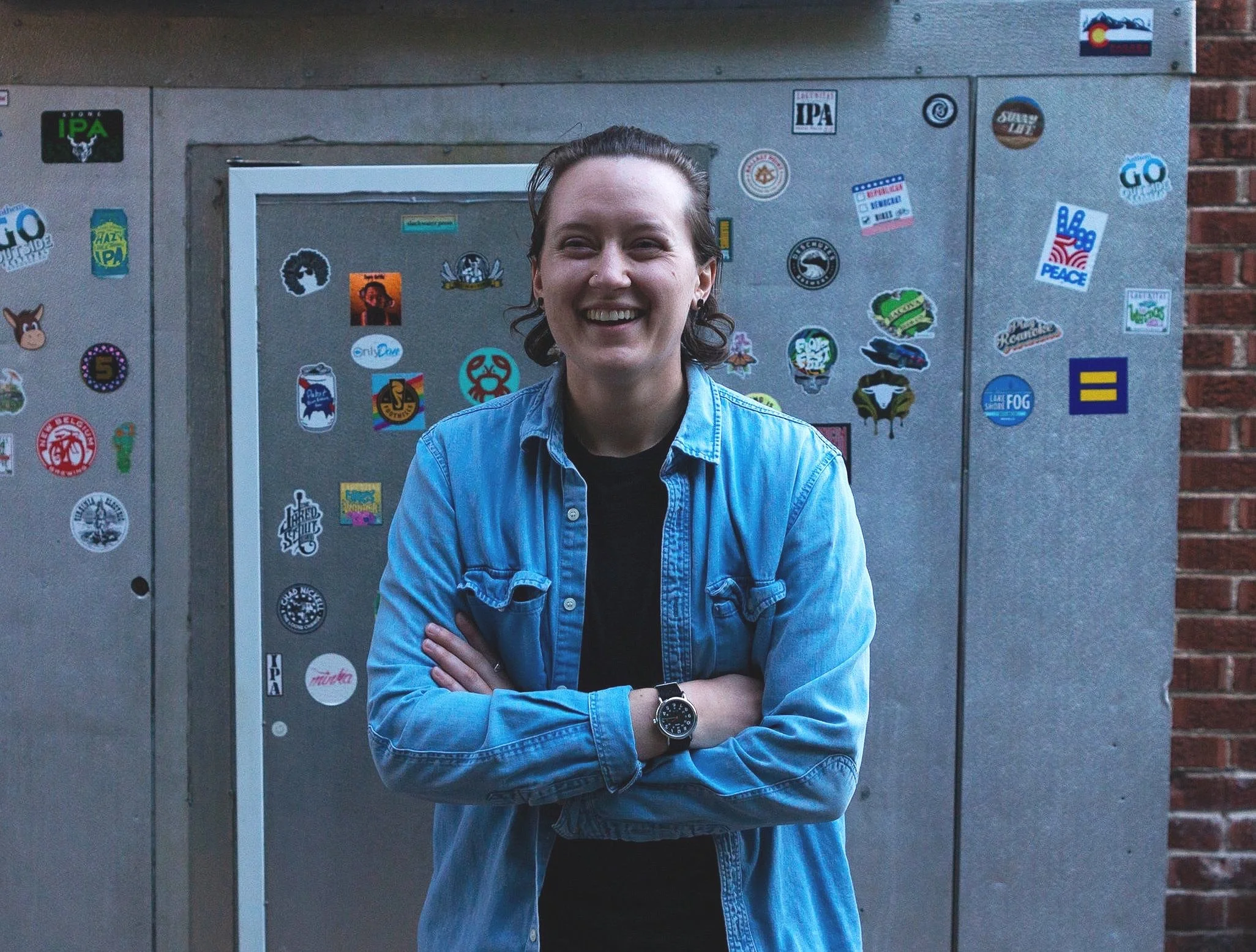Image of Elder Leroy Bennet preparing ceremonies for the 2018 Sixties Scoop Gathering in Ottawa, Canada by Colleen Hele Cardinal
This is a guest article written by Colleen Hele Cardinal, an author and Co-Founder and Executive Director of the Sixties Scoop Network, formerly known as the National Indigenous Survivors of Child Welfare Network. Colleen is Plains Cree originally from Saddle Lake, Alberta, and is a Sixties Scoop survivor.
For the longest time, I believed my sisters and I were unique in our experiences of being adopted into an abusive household with non-Indigenous people. I would later learn the term “the 60s scoop” - an aggressive tool used by the federal and provincial governments to adopt Indigenous children into non-Indigenous households across provinces and overseas.
Image of Colleen Hele Cardinal
Most Canadians are ignorant about the history of Canada and how much Indigenous people have suffered and endured so they could prosper and attain their dreams on our lands. Learning that there are others, over 20,000 First Nation, Metis and Inuit children who have experienced transracial adoption with white families intrigued me. I wanted to find other adoptees like myself, and listen to and validate their experiences as well. It wasn't just about being adopted, it was about hearing from others if their experiences resembled mine and learning what are they doing now. Did they find their families? How was that? What is their life like now?
Getting into college was not a part of my plan as a young First Nation woman who was literally crippled with trying to survive my teens and young adulthood. At the age of 28, I was finally able to attempt higher education. College introduced me to Anishinaabe culture and ceremony and it was when I first started learning about the harm Canada had done to Indigenous people through residential schools and child welfare policies in their vicious attempt to erase Indigenous people from the land. Many people do not realize how much federal government resources went into trafficking Indigenous children away from the traditional lands to be assimilated under the guise of benevolence.
When I first started out, I never intended to create spaces for 60s Scoop survivors or be an advocate but it was needed: no one else was doing it so we had to create it for ourselves. In the beginning, I just wanted to share my story through a documentary that was never finished, but ten years later I've published my memoirs, co-founded a non-profit, created and hosted four national 60s scoop gatherings in Ottawa, conceptualized and initiated a GIS (geographical Information system) map project to show the displacement and trafficking of Indigenous children of the 60s scoop child welfare policies and given hundreds of educational presentations about the Sixties Scoop Network and the work we initiated in Ottawa.
At the time of our first gathering, we were the only ones in Canada organizing gatherings for 60s scoop survivors and we have brought hundreds of 60s scoop survivors together which has led to these survivors forming their own non-profits in their provinces. Initially, I just wanted to find other adoptees like me and share our stories, validate and support each other but it has led to so much more. For many adoptees like myself, finding each other has led to the validation of our experiences and cultural reclamation in a safe supportive environment and a global 60s scoop community that are connected by our experiences as displaced transracial adoptees. We continue to heal collectively through small gatherings and staying connected by social media, supporting each other the best we can because we know the larger Indigenous community can’t relate to our experiences. The challenge of finding counsellors and care providers who can understand the loss of culture and identity coupled with unresolved trauma leaves us feeling like we don’t belong anywhere. We are the educators that have to teach folks what the 60s Scoop is and how it impacted us, our children and the work we are doing now to heal.
If can leave you with one positive message, it is that we are healing and are asking Canadians to take the time to read and learn about what 60’s Scoop survivors need to heal and demand a national inquiry and apology from Canada for what they have done to our families and communities.
Screen grab of the Sixties Scoop Map provided by Colleen Hele Cardinal showing the adoptees displacement.
Photographers Without Borders is thankful to Colleen for providing insight into the Sixties Scoop and her experiences as a survivor. To learn more about the Sixties Scoop and to donate to the Sixties Scoop Network visit you can visit their website by following the link below.








